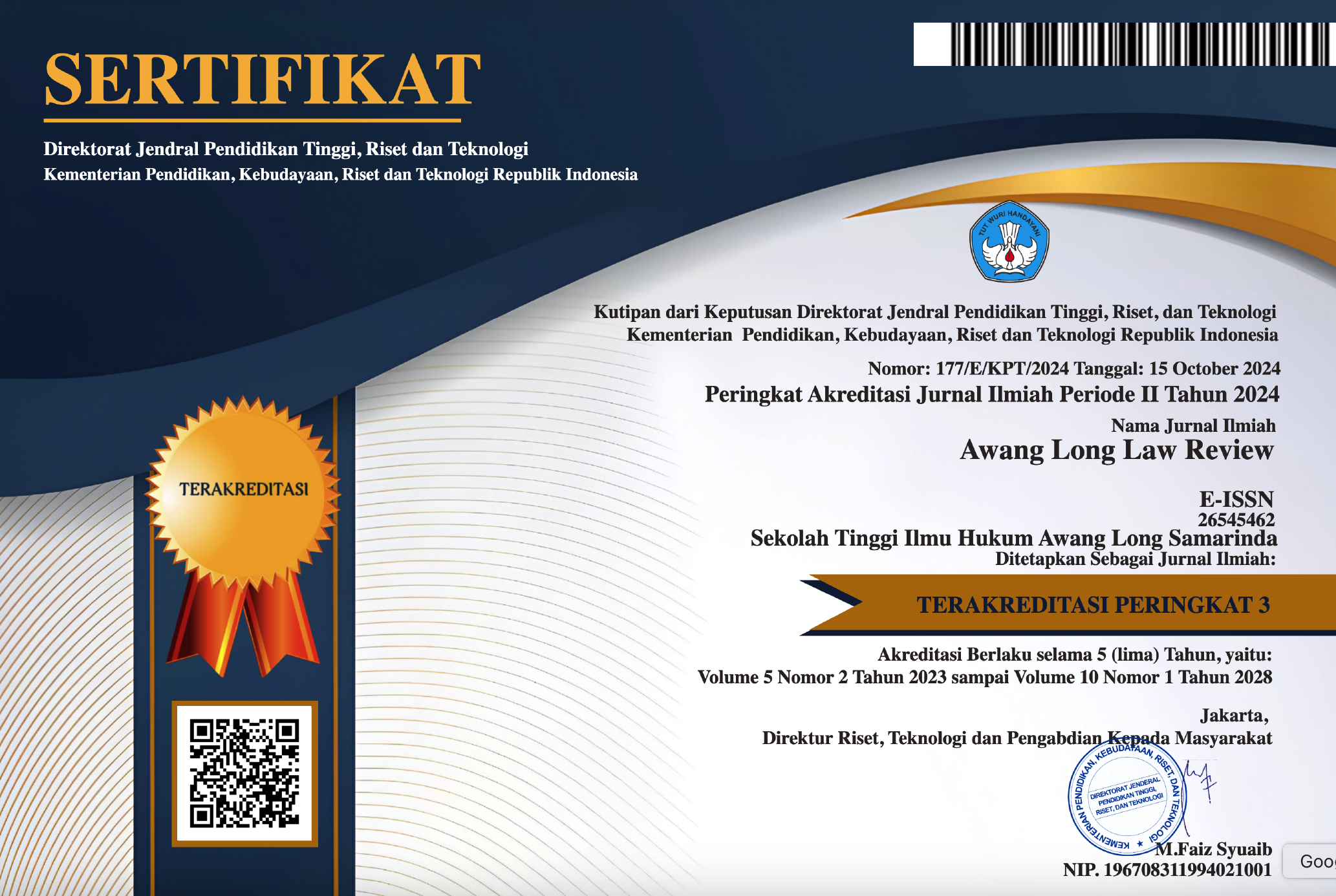EXPLORING ETHICAL CLEARANCE IN RESEARCH: STUDENTS' PERCEPTIONS
Abstract
The need for research that meets the code of ethics increases along with the awareness of researchers to conduct research in accordance with ethical standards. However, awareness of the code of ethics is certainly not possessed by all academics, especially students. This study aims to explore students' perceptions of the code of ethics in conducting research and how perceptions influence students' views on the ethicals. The research method used in this study uses an experimental approach. This study involved 94 research participants in the study. Data analysis used in this study is validity, reality and correlation analysis. This study found that demographic data such as Gender, Semester Level and Research Subjects did not correlate with other variables. While the variable of importance of ethical clearance has a correlation with the impact of ethical violations, protection of research subjects and the responsibility of researchers and institutions.
Downloads
References
Allen, G. (2016). Human Research Ethics: Planning for succcess but DON’T PANIC. Australian Research Data Commons (ARDC). https://doi.org/10.5446/43146
Alvesson, M., & Stephens, A. (2024). ‘Is it worth doing this or is it better to commit suicide?’: On ethical clearance at a university. Human Relations, 00187267241248530. https://doi.org/10.1177/00187267241248530
Blair, R. S., & Harper, D. W. (1995). When is ethical review of research protocols necessary? A proposed classification system for evaluating Canadian hospital-based research. SRA Journal, 27(2), 19.
Brown, C., Spiro, J., & Quinton, S. (2020). The role of research ethics committees: Friend or foe in educational research? An exploratory study. British Educational Research Journal, 46(4), 747–769.
Chakranarayan, A. (2016). Questionable Ethical Clearance, Incorrect Recommendations and Indiscernible Merit. Journal of Maxillofacial and Oral Surgery, 15(1), 133–133. https://doi.org/10.1007/s12663-015-0873-3
Das, S., Chandra, A., & Nongkynrih, B. (2023). Options of Funding and Ethical Clearance for Medical Researchers in India. Annals of the National Academy of Medical Sciences (India), 59, 68–76. https://doi.org/10.1055/s-0042-1760084
De Wet, K. (2010). The Importance of Ethical Appraisal in Social Science Research: Reviewing a Faculty of Humanities’ Research Ethics Committee. Journal of Academic Ethics, 8(4), 301–314. https://doi.org/10.1007/s10805-010-9118-8
Denis, D. J. (2019). SPSS Data Analysis for Univariate , Bivariate , and Multivariate Statistics. John Wiley & Sons, Inc.
Edwards, N., Viehbeck, S., Hämäläinen, R.-M., Rus, D., Skovgaard, T., Van De Goor, I., Valente, A., Syed, A., & Aro, A. R. (2012). Challenges of Ethical Clearance in International Health Policy and Social Sciences Research: Experiences and Recommendations from a Multi-Country Research Programme. Public Health Reviews, 34(1), 11. https://doi.org/10.1007/BF03391663
Ficorilli, A. (2022). Aetiological observational studies and ethical clearance: An Italian co-created study in Tuscany Region (Central Italy). Epidemiologia & Prevenzione, 46(4), 273–277. https://doi.org/10.19191/EP22.4.A484.066
Gurung, M. S., Dema, T., Pelzom, D., Tobgay, T., & Drukpa, P. (2016). Research Ethics Board of Health: A seven year review of the only ethics review board in Bhutan. Bhutan Health Journal, 2(1), 25–29. https://doi.org/10.47811/bhj.18
Hoque, Z., & Rana, T. (2018). Dealing with human ethical issues in research: Some advice. In Methodological Issues in Accounting Research: Theories & Methods (Vols. 1–29, pp. 602–612). Spiramus Press.
Mbabe, W., Ajayi, O., Bagula, A., Leenen, L., & Schoeman, N. (2021). A workflow system for managing ethical clearance in research work. 1–9.
McCormick, K., Salcedo, J., Peck, J., & Wheeler, A. (2017). SPSS Statistics for Data Analysis and Visualization. John Wiley & Sons, Inc.
Meka, I., Idemili-Aronu, N., & Chukwuneke, F. (2024). ScholarOne—Compliance with ethical clearance certifications among medical journals in Nigeria – A mixed method study. (FOR FOGARTY SPECIAL ISSUE). Preprints. https://doi.org/10.31124/advance.172355693.39708110/v1
Ramrathan, L., Le Grange, L., & Shawa, L. B. (2017). Ethics in educational research. Education Studies for Initial Teacher Education, 432–443.
Sundas, N., Ghimire, S., Bhusal, S., Pandey, R., Rana, K., & Dixit, H. (2020). Sleep Quality among Medical Students of a Tertiary Care Hospital: A Descriptive Cross-sectional Study. Journal of Nepal Medical Association, 58(222). https://doi.org/10.31729/jnma.4813
Wahyuwardani, S., Noor, S., & Bakrie, B. (2020). Animal welfare ethics in research and testing: Implementation and its barrier.
Wardhono, A., & Lestari, Y. (2023a). The Awareness of Lecturers Towards the Role of Research Ethics Commission in Research. In S. Setiawan, W. P. Saroinsong, M. N. Ashar, C. Boonrongrut, R. N. B. Aji, Y. Lestari, L. Mulya, G. W. Pradana, R. Riyadi, A. M. Tayeb, L. P. Hartanti, & H. R. Ayu (Eds.), Proceedings of the International Joint Conference on Arts and Humanities 2022 (IJCAH 2022) (Vol. 724, pp. 976–983). Atlantis Press SARL. https://doi.org/10.2991/978-2-38476-008-4_103
Wardhono, A., & Lestari, Y. (2023b). The Understanding of Research Ethics Reviewers on Ethical Clearance Review Process: A Case Study. In A. Mustofa, I. Widiyanah, B. K. Prahani, I. A. T. Rahayu, Moh. Mudzakkir, & C. D. M. Putri (Eds.), Proceedings of the International Joint Conference on Arts and Humanities 2023 (IJCAH 2023) (Vol. 785, pp. 417–425). Atlantis Press SARL. https://doi.org/10.2991/978-2-38476-152-4_40
Yesuf, S. A. (2024). Ethical clearance paper as a bottleneck. The Pan African Medical Journal, 47. https://doi.org/10.11604/pamj.2024.47.198.43491
Copyright (c) 2025 Citra Kurniawan, Herlin Pujiarti, Ence Surahman, Ubed Sonai Fahruddin Arrozi, Febri Taufiqurrahman, Nur Anita Yunikawati

This work is licensed under a Creative Commons Attribution-ShareAlike 4.0 International License.







